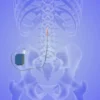More than 10% of Americans — about 40 million people — suffer from migraine headaches, according to the Migraine Research Foundation, and about 4 million have chronic symptoms occurring multiple days every month.
There’s no way to prevent migraines completely, but fortunately, there are steps you can take to reduce the symptoms and their frequency.
The Advanced Spine and Pain Center team helps patients manage migraines with therapies tailored to their symptoms, lifestyle, and other personal factors for the best possible results. Here, our team explains why migraines happen and what treatments can help you feel better.
Why migraines happen
Medical researchers are still learning about migraines and their possible causes. So far, they’ve linked them with elevated nerve sensitivity in the head and brain. When these nerves are activated or overstimulated, they produce special chemicals that, in turn, trigger pain sensations. Researchers also know that people with a family history of migraines are more prone to having migraines themselves.
While headache is the primary symptom associated with migraines, many people have other symptoms, as well, like:
- Nausea
- Sensitivity to light, sound, or smells
- Dizziness or balance problems
- Bowel or urinary changes
- Irritability or fatigue
- Vision changes, like “tunnel” vision or flashes of light
The symptoms surrounding migraines are referred to as the migraine’s aura, and they can occur before headache symptoms or even without head pain.
While it’s important to understand migraine symptoms, you need to understand what factors can trigger your migraines, too. Some common triggers include:
- Lack of sleep
- Dehydration
- Caffeine or alcohol
- Weather changes
- Skipping meals
- Stress
- Hormonal fluctuations or hormone medications
Knowing your triggers can play a role in migraine prevention, but of course, it’s not possible to avoid every trigger all the time. That’s when medical treatment can help.
Treating — and preventing — migraines
Our team offers several treatments to help relieve migraine pain and even prevent headaches from happening in the future.
Medications
While over-the-counter medications may be sufficient for milder migraines, for more severe symptoms, you may need a prescription medication. To work as well as intended, many medications need to be taken at the first sign of migraine symptoms.
Some migraine medications can help reduce the frequency and severity of migraine episodes. Our team thoroughly evaluates you before prescribing any medication to ensure it’s right for you.
Botox® injections
Most people know Botox as a “wrinkle-fighting agent,” but it also helps with many medical problems, including migraines. Botox is a neuromodulating agent, which means it works by modulating nerve signals.
While cosmetic Botox injections focus on preventing nerve signals that cause muscle contractions (and wrinkles), Botox for migraines targets nerves involved in headache pain. Injections use very thin needles; placement is mapped based on your anatomy to ensure optimal results.
Nerve blocks
Nerve blocks are a type of injection therapy that uses medication to numb nerves and prevent them from sending pain signals. For migraines, nerve block injections often target the nerves in the back of your head — the occipital region of your skull.
During treatment, your provider uses a very slim needle to inject small amounts of medicine into the area surrounding the occipital nerves. Typically, injections use numbing agents, like lidocaine, sometimes with the addition of a corticosteroid to relieve inflammation that could be pressing on nerves.
Performed on an outpatient basis, nerve blocks can provide immediate relief for current symptoms while preventing symptoms from returning for 2-3 months. These injections can be a great solution for people with chronic migraines when other treatment options are ineffective.
Find relief for your migraine headaches
Migraines can affect physical and emotional wellness and overall quality of life. To learn how we can help you manage your migraine symptoms, book an appointment online or over the phone with the team at our three locations in San Antonio, Texas, today.





